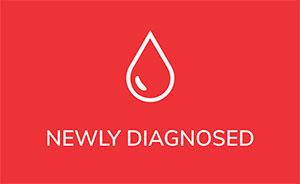Medically reviewed by Dr. Brian Koffman
The Bottom Line:
Immunoglobulin replacement therapy (IgRT) effectively reduces infection risk in patients with CLL. However, more work needs to be done to ensure that more patients get their IgG levels tested and receive immunoglobulin replacement therapy.
Who Performed the Research and Where Was it Presented:
Dr. Jacob Soumerai from Massachusetts General Hospital Cancer Center and colleagues presented the results at the American Society for Hematology (ASH) Annual Meeting 2023.
Background:
Patients with chronic lymphocytic leukemia (CLL) and small lymphocytic lymphoma (SLL) are immunocompromised, meaning that their immune systems are not working normally. This leaves patients vulnerable to recurrent infections, which can be life-threatening. Hypogammaglobulinemia is a condition that can occur in patients with CLL where there is a reduction in the antibodies (gammaglobulins) that are responsible for activating the immune response to viruses and bacteria. It can be caused by CLL / SLL or triggered by certain treatments. Hypogammaglobulinemia can be treated with immunoglobulin replacement therapy, a pooled blood product from many donors containing antibodies that can help patients fight infections. This study looked at the use and efficacy of immunoglobulin replacement therapy in real-world clinical practice.
Methods and Participants:
This retrospective study used data from the Massachusetts General Brigham Research Patient Data Registry. The study evaluated immunoglobulin replacement therapy use in adult patients diagnosed with CLL after 2010 who had one year or more of clinical data available.
Results:
- The study included 3960 patients with CLL.
- Infections are still a significant problem for patients with CLL, with more than half of patients developing an infection at some point.
- Despite high rates of infections, immunoglobulin (IgG) testing practices were inconsistent across the various sites in the Massachusetts General Health system.
- Approximately two out of three patients had their IgG levels tested, but some patients never had their IgG levels tested.
- One out of three patients had hypogammaglobulinemia (IgG levels < 500 mg/dL).
- Despite the high risk of infections in CLL patients, only about 6 out of 100 patients received immunoglobulin replacement therapy.
- After receiving immunoglobulin therapy, fewer patients had hypogammaglobulinemia.
- Patients who received immunoglobulin therapy had significantly decreased infection and severe infection rates and reduced antimicrobial medication use.
Conclusions:
Immunoglobulin replacement therapy effectively reduces infection risk in patients with CLL. However, more work must be done to ensure that more patients get their IgG levels tested and receive immunoglobulin replacement therapy. Dr. Soumerai and colleagues are also testing a new antibody profiling panel that detects antibodies against specific pathogens (i.e., staph, influenza, and COVID-19) and measures their functional capacity. The hope is that this panel could be used in the future to determine how at-risk patients are for specific infections. They have an open clinical trial recruiting patients with CLL or multiple myeloma. If you are interested in participating, more information can be found here: Biomarker for Infection Risk in CLL and MM.
Links and Resources:
Watch the interview on the abstract here:
You can read the actual ASH abstract here: Infection Outcomes and Hypogammaglobulinemia in Patients with Chronic Lymphocytic Leukemia Treated with Immunoglobulin Replacement Therapy
Take care of yourself first.
Ann Liu, PhD

















